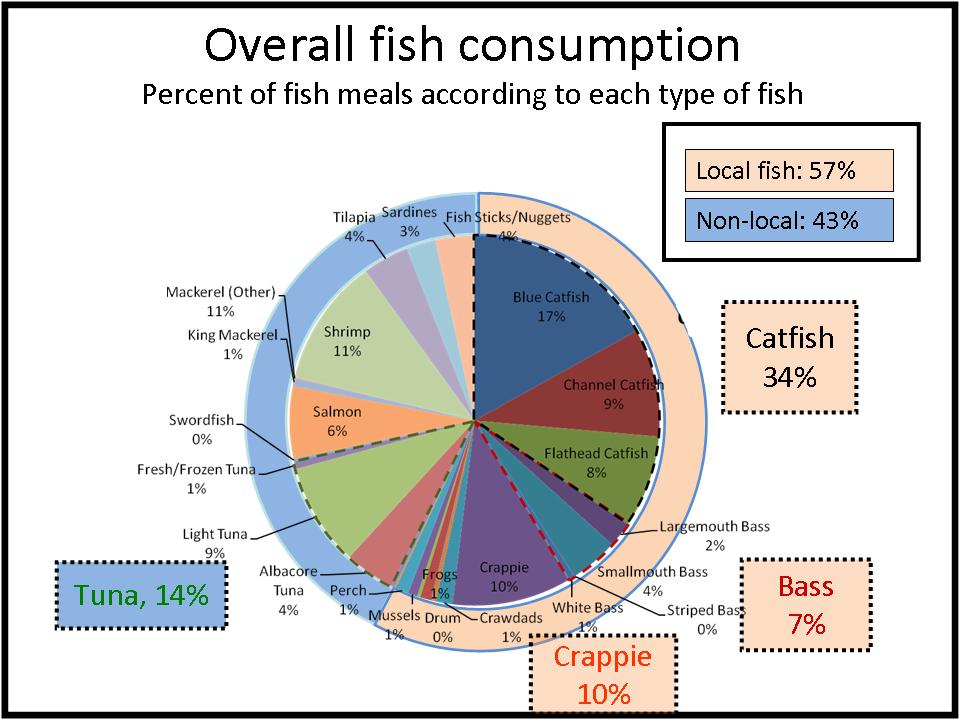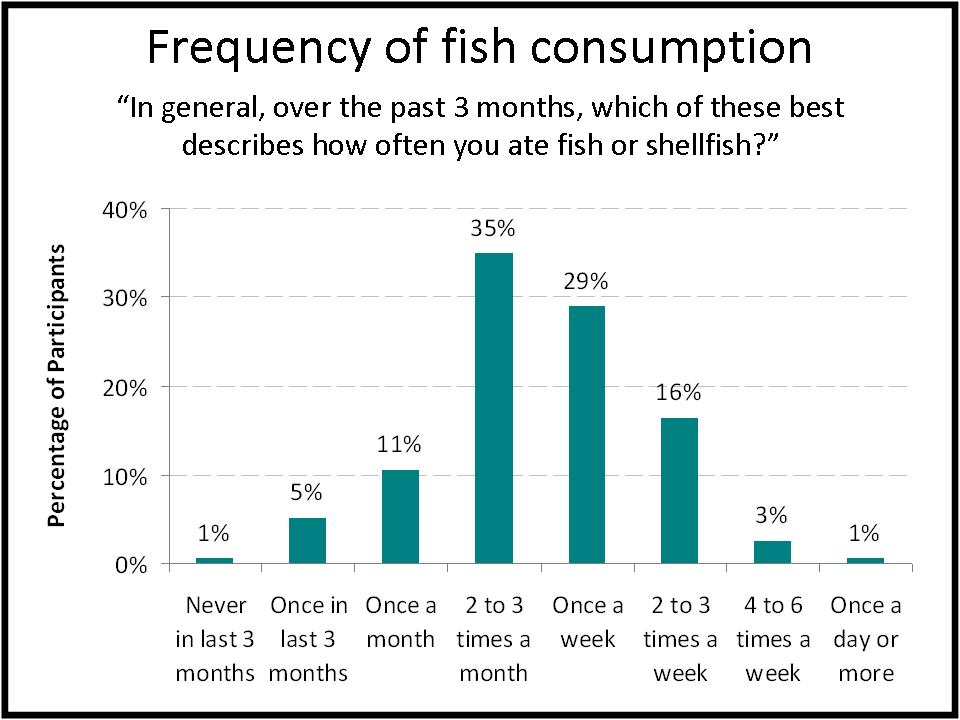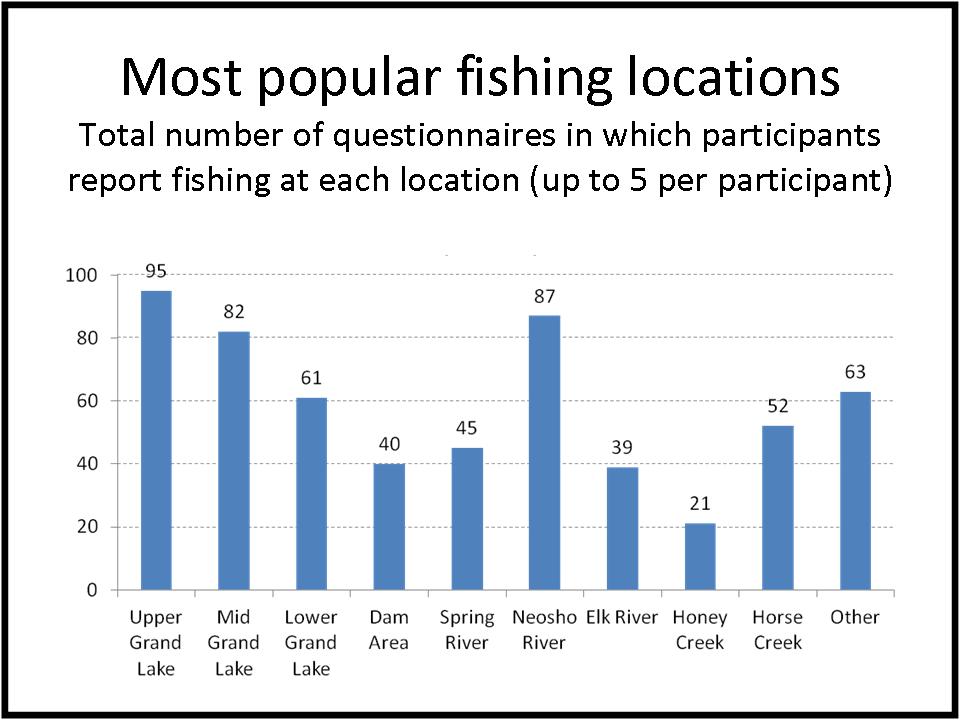
|
Fish consumption
What types of fish did people eat?
Our participants reported eating over 20 different types of fish. The most frequently eaten local fish were catfish (blue, channel, flathead), crappie, and bass. The most frequently eaten saltwater fish were tuna and mackerel.
|

Click to enlarge
|
|
|
How much fish did people eat?
84% of our participants ate fish at least 2-3 times per month, and 16% ate fish at least 2 to 3 times per week.
The average rate of fish consumption among our participants was 1.8 ounces per day, which is around twice as high as the national average (including people who do not eat any fish) and less than half the average rate of fish consumption for Americans who eat fish.
|

Click to enlarge
|
|
|
How often and where did our participants go fishing?
60% of our participants reported fishing in the previous 3 months. On average, our participants reported going fishing 16 times in the previous 3 months.
Our participants fished throughout the Grand Lake watershed. The most popular locations included the upper and middle part of Grand Lake and the Neosho River.
|

Click to enlarge
|
|
|
Has the government updated their fish consumption guidelines recently?
The FDA and EPA recently issued draft updated advice for fish consumption. They concluded pregnant and breastfeeding women, those who might become pregnant, and young children should eat more fish that is lower in mercury in order to gain important developmental and health benefits. The draft updated advice is consistent with recommendations in the 2010 Dietary Guidelines for Americans. Read all about it and learn how to submit comments on the draft here.
|

